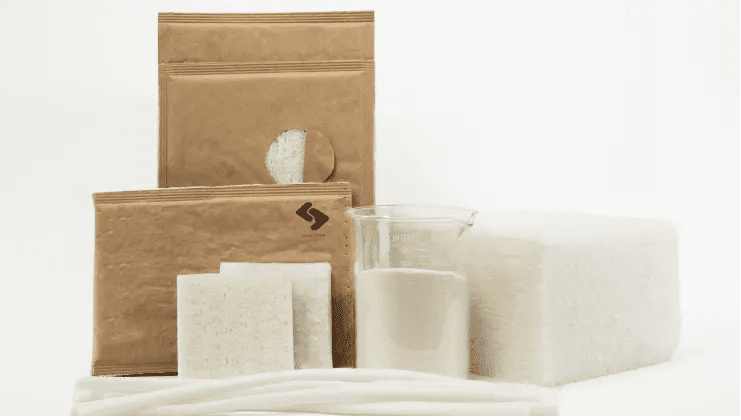More than 100 cities in the United States have enacted ordinances that restrict or completely ban the use of disposable polystyrene foam, especially in restaurants and when transporting food and other products. In California alone, 97 cities or counties have partially or completely banned the use of single-use polystyrene foam, another of which is scheduled for May of this year in Los Angeles County.
At the same time, companies that ship or sell fragile goods, food or medical supplies that need to be kept cool during transport still need materials with the light weight, insulating qualities and manufacturability of polystyrene foam.
That's where the opportunity to start a business in the Cruz bubble comes in. Founded in 2017 by CEO John Felts and CTO Marco Rolandi, the startup, which currently has about 30 full-time employees, has created an alternative to expanded polystyrene, known by its trade name polystyrene foam.

Cruz foam is made from natural materials, including chitin as well as starch and fiber diverted from the agricultural waste stream. Chitin is a polymer contained in the exoskeletons of shrimp and other crustaceans as well as insects. It is biodegradable and is usually safe for animals to consume.
In contrast, traditional polystyrene foam is made with heavy chemicals that degrade slowly and prove harmful when it breaks up and accumulates in our oceans, adding to microplastic pollution.
According to wildlife conservation researchers at Fauna and Flora International, when marine organisms ingest polystyrene foam, it "can cause a number of problems such as digestive disturbances, false satiety that can lead to hunger, and reduced fertility. On top of that, polystyrene foam products are often treated with flame retardants that can absorb other contaminants from the surrounding water, thus increasing the threat to any wildlife that feeds or lives in the waste polystyrene foam.
On Wednesday, Cruz Foam officially launched its new shipping product line, which includes
Foam and paper packaging, which can replace bubble wrap or Styrofoam peanuts
Foam-filled mailers
Foam coolers that protect and keep fresh and frozen items cold
Foam products that protect large items such as furniture.

In terms of new products, Felts acknowledges the high demand for disposable insulated coffee cups and take-out containers. But his company's focus this year will remain on e-commerce, shipping and protecting everything from auto parts and medical supplies to meal kits.

